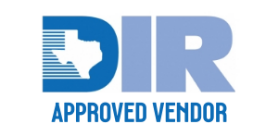Get your fleet on the right track with fleet optimization
- Nick Towry
- May 22, 2023
- 2 min read
Updated: Jun 17, 2024
In recent years, GPS tracking has become a vital tool for commercial fleet management. The technology has transformed the way businesses operate, providing real-time insights into the location and status of vehicles, and enhancing overall fleet efficiency. In this blog post, we will explore the benefits of GPS tracking for commercial fleets.
Improved Fleet Management
One of the primary benefits of GPS tracking is the ability to monitor and manage fleets remotely. With GPS tracking, fleet managers can view the location of all vehicles in real-time, track fuel consumption, monitor driver behavior, and even receive alerts for vehicle maintenance. This level of oversight helps fleet managers optimize routes, reduce idle time, and streamline overall operations.
Enhanced Safety
GPS tracking helps improve safety for drivers and other road users. By monitoring driver behavior, fleet managers can identify and address unsafe driving practices, such as speeding, harsh braking, and aggressive driving. GPS tracking also allows managers to respond quickly to emergency situations and dispatch assistance to drivers in need.
Improved Customer Service
GPS tracking enables businesses to provide faster and more accurate delivery times to customers. By monitoring the location of vehicles, fleet managers can quickly identify the nearest driver to a customer's location, adjust routes to avoid traffic, and provide real-time updates on delivery times. This level of service can help businesses build stronger relationships with customers and increase customer loyalty.
Cost Savings
GPS tracking can help businesses save money in several ways. By optimizing routes, fleet managers can reduce fuel consumption, lower maintenance costs, and extend the life of vehicles. GPS tracking can also help reduce insurance costs by improving driver safety and reducing the risk of accidents. Overall, these cost savings can help businesses improve their bottom line and increase profitability.
Compliance
GPS tracking can help businesses ensure compliance with regulatory requirements. For example, the Electronic Logging Device (ELD) mandate requires commercial drivers to use ELDs to record hours of service (HOS) and ensure compliance with federal hours-of-service regulations. GPS tracking systems can help businesses comply with this mandate by providing accurate HOS records and reducing the risk of violations.
In conclusion, GPS tracking is a valuable tool for commercial fleet management. By improving fleet management, enhancing safety, improving customer service, reducing costs, and ensuring compliance, GPS tracking can help businesses increase efficiency and profitability. As the technology continues to evolve, we can expect to see even more benefits for commercial fleet operators.v


Comments